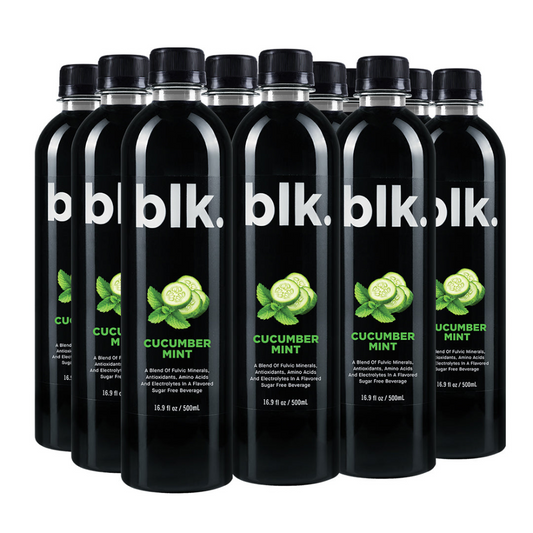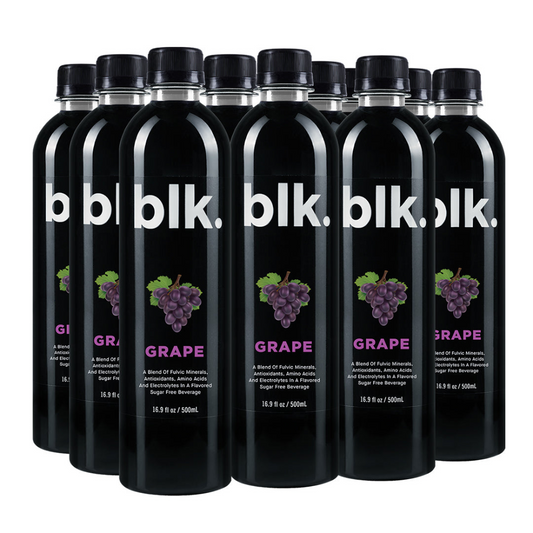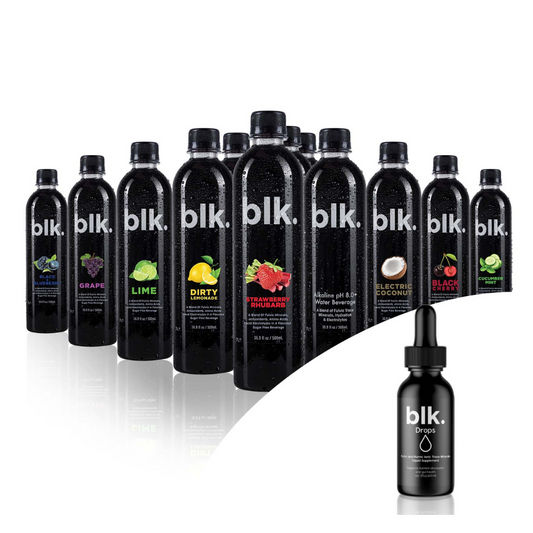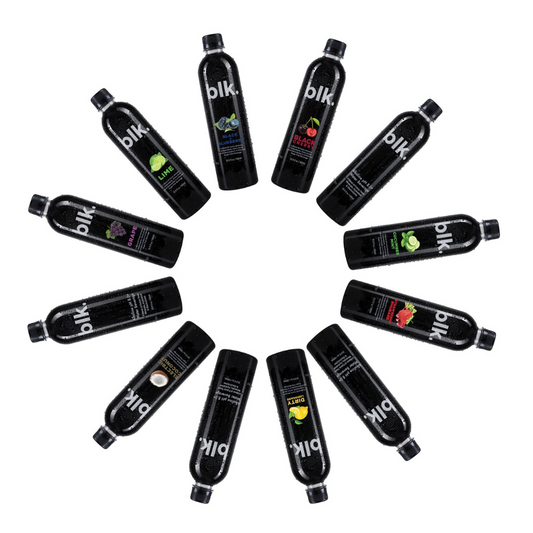
The Creatine Ultimate Guide - Benefits, Uses, Types
The Creatine Ultimate Guide - Benefits, Uses, Types
This Guide seeks to answer the following questions:
- What is creatine?
- How it works in our body.
- The different forms of creatine.
- The benefits of creatine.
- How to use creatine.
Whether you are an ardent fitness enthusiast, a pro athlete, or a beginner, you have probably heard of creatine. But what exactly is creatine, and why is it essential in your fitness journey? What makes it so popular? Getting all the information about creatine is crucial before taking any supplements. That way, you can decide what type of supplements are best suited for your fitness goals. So, let's get right into it!
Creatine is a popular supplement among many fitness enthusiasts and athletes, and in this article, we will discuss creatine and its potential benefits. As a supplement, creatine is taken by athletes and fitness enthusiasts to enhance their performance. It is the most common supplement among athletes and sportperson because of the qualities that we are going to talk about.
Numerous creatine supplements are available in the market, and choosing the right one can be confusing. To make things easier for you, we have curated a list of three of the top-performing creatine brands for 2023 currently available with ripped.com, leading online store for health supplements.
2023 The 3 Best Creatine Products
These three best creatine supplement brands are selected based on factors such as high-quality ingredients, strict manufacturing standards, clinical research, customer reviews, and good value for money. Products with positive results from research, favorable customer feedback, and a fair price are considered the best.
Here are some of the best creatine supplements based on best-selling products that have received the best customer reviews.
- Ruleone: Creatine Unflavored 150 Servings
- MHP: Creatine Monohydrate 60 Servings
- Hi-Tech Pharmaceuticals: Creatine Monohydrate 200 Servings
What is creatine?
Before you pick out any creatine supplement, it is best to understand first what it is and what it does to your body.
Creatine is a naturally occurring chemical in our bodies and is also found in our foods, especially red meat, and seafood. It is stored as phosphocreatine in our muscles that helps produce a substance called Adenosine Triphosphate(ATP); the chemical that provides energy for our muscles for contraction. We shall get into details of the science of creatine later in our discussion.
Sources of creatine
So, where does creatine come from? Approximately 50% of creatine is derived from the foods we take, and our body synthesizes the other half.
On average, a person needs between 1 and 3 grams (g) of creatine daily, but the quantity may vary, especially for athletes engaged in high-intensity training exercises. The International Society of Sports Nutrition (ISSN) recommends between 5 and 10g of creatine, particularly for athletes. People who have health complications that render their bodies incapable of synthesizing creatine. As such, they are recommended to take 10 to 30 g per day to prevent complications arising from the deficit.
Since 50% of creatine comes from our diet, knowing which foods are creatine-rich is essential. Here are some of them.
Red Meat
Red meat has the highest content of creatine compared to other sources. Beef and pork have a high content of creatine. In a serving size of 4 ounces(113 grams/0.25 pounds), beef has about 0.38 grams of creatine content, while pork has 0.57 grams. An important note to remember is that some of the creatine may be lost during cooking, about 30% of it. A lump of overcooked meat will have very little creatine. If you like your steak well done, there is a high chance that most of the creatine has already been lost.
Poultry
The creatine content in poultry varies according to the particular type of poultry. Chicken is the most common poultry and 4 ounces of serving gives you about 0.44 grams of creatine content. Turkey is also a good source, but the creatine content is not well known.
Fish
Fish tend to have excellent quantities of creatine. The amount may vary depending on the variety of fish and whether it is farmed or wild. Salmon, Tuna, and Herring are fish types with the highest creatine content. In servings of about 0.25 pounds(4 ounces/113 grams), Salmon has about 0.5 grams of creatine, Tuna is about 0.45 grams, and Herring has the highest creatine content of about 0.9 grams.
Dairy Products
Milk has a limited amount of creatine content. It has 0.013 grams of creatine in a 120ml serving. However, other dairy products like cheese have slightly higher creatine content and can be a great source of creatine for vegetarians.
The Science of Creatine
Now that you are familiar with what creatine is, it is time to get into the nitty-gritty of its workings; the science behind it.
As we have seen earlier, creatine is a naturally occurring substance found in small amounts in certain types of food like meat and fish, but our body also synthesizes creatine. The creatine produced by our body is stored as phosphocreatine in the muscles. Phosphocreatine helps our body by creating Adenosine Triphosphate (ATP), which makes energy for the contraction of the muscles. During high-intensity activities such as weightlifting or sprints, the phosphocreatine in the muscles is broken down to release a high-energy phosphate group, generating Adenosine Triphosphate. This process, in which the creatine stored as phosphocreatine is broken down to release energy, is known as the creatine phosphate energy system.
Supplements with creatine are meant to support the phosphocreatine stored in the muscles. Increased phosphocreatine leads to improved performance in athletes. Plenty of phosphocreatine rapidly help the production of Adenosine Triphosphate(ATP), producing more energy. The athlete, therefore, can perform highly because of more energy and is less likely to get fatigued quickly.
Other than good energy levels, studies have also shown that creatine has the potential benefit of increasing muscle mass and strength and improving muscle recovery. These outcomes are believed to be connected to creatine's capacity to hydrate muscle cells, boosting protein synthesis and promoting muscle gain.
Different Forms of Creatine And Their Benefits
At this point, you are familiar with the natural sources of creatine, that is, through foods and the creatine produced naturally by your body.
Creatine is arguably the most extensively researched dietary supplement. Thousands of scientific studies have concluded that creatine supplements are the best and safest options for enhancing performance. Due to creatine's ability to improve performance, scientists have found ways to incorporate creatine into supplements to ensure you get the most out of it. These types of creatine are divided into different categories that are discussed herein.
Creatine Monohydrate
This is the most common type of creatine, and there is plenty of in-depth research on this particular type. Most studies of creatine as a supplement focus mainly on creatine monohydrate because it is believed to be the most effective. It is not a surprise that it is the most popular form of creatine among athletes.
Creatine Monohydrate consists of a creatinine molecule and a water molecule, although it may be further processed in various ways.
When a water molecule is removed, it makes creatine anhydrous. Alternatively, it can be micronized to improve its solubility so the body can easily absorb it.
Although it may be processed in many different ways, all the products are equally effective in similar doses.
Other than improving performance by boosting strength and energy, creatine monohydrate also help with the water content in the muscle cells.
Additionally, extensive research has proved that it is safe to consume and has no adverse side effects.
Creatine Hydrochloride
This form of creatine is relatively new in the market and is increasingly gaining popularity. Its popularity is because it is believed to have better solubility than even creatine monohydrate, which is considered the gold standard.
Superior solubility qualities are advantageous because they may be consumed in lower doses and still be effective. Lower doses reduce the chances of developing side effects such as bloating and other stomach discomforts.
Creatine Chelate
This is a form of creatine that is made together with magnesium. Magnesium plays a role in the creatine phosphate energy system. So, theoretically, if creatine is supplemented alongside, it should increase its effectiveness. Nonetheless, a study has shown that it is just as effective as creatine monohydrate.
Creatine Ethyl Ester
People who prefer this type of creatine have claimed it is superior to other forms of creatine because it can be absorbed better than other forms, including creatine monohydrate. However, a study showed that it is not as effective in increasing the creatine content in the body. Therefore, it is inferior compared to other creatine forms.
Buffered Creatine
Creatine can sometimes cause bloating in the stomach. Buffered creatine is those that have been added to the alkaline powder to improve the stability in the stomach, thereby reducing some of the side effects of bloating and cramping. However, in terms of effectiveness, research has shown that buffered creatine is not superior to creatine monohydrates.
How to Use Creatine
By now, you already know that creatine definitely works. The next thing you should focus on is how you should take creatine to ensure it does its work effectively. You may have taken creatine supplements, yet you have not seen the results you expected. Perhaps it's time to reevaluate how you take your supplements.
Consistency is key! It takes some time for the creatine to saturate the muscle before you start seeing any effect. It is not enough to take creatine only a few days a week and expect good results.
That being said, there are two options that you can choose from on how to take your creatine; either the loading method or the low-dose daily supplementation.
Creatine Loading Method
This is the most popular way that people take their creatine supplements. It starts with the loading phase and then moves to the maintenance phase. The loading phase involves taking high doses of the supplements to saturate in the muscles. The maintenance phase follows a few days after the loading phase with low doses of creatine to maintain it at its current levels.
Recommended dosage
The dosage may vary depending on the activity and type of exercise a person is involved in. A typical loading phase consists of taking high doses of about 20-25 grams daily, 4-5 times a day for 5-7 days. After this loading phase, a person can take about 3-5 grams daily to maintain creatine levels.
The loading method, however, is not a must. Don't let the gym bros scare you on alleged potential side effects. The loading method may also cause some discomfort to some people. If you have recently had a bad experience with this method, try the daily low-dose method.
Daily Low-dose Method
This simpler method involves taking only low-dosage levels of creatine supplements.
Recommended dosage
This method is pretty straightforward. Just take 3-5 grams of creatine daily for about three weeks, and the results will be visible.
Which method should you pick?
It all comes down to your preference. Both methods are just as effective, provided that you are consistent enough.
When should I take creatine?
You can take creatine anytime you want, provided you remain consistent. You can take it pre-workout, post-workout, or whenever you like. There is little difference in the result, regardless of the time you take your creatine.
Who should take creatine?
While creatine is safe and can be used by everyone, particular groups of people can benefit more from creatine supplements. These include athletes and bodybuilders, people who eat plant-based foods, people with cognitive decline and the elderly who have started having muscle degeneration.
Taking Creatine with Other Supplements
Although creatine can be taken as a stand-alone supplement, it is common among athletes and fitness enthusiasts to take it in combination with other supplements.
However, it's important to understand how creatine interacts with other supplements to ensure safety and effectiveness. Here are some important things to keep in mind when taking creatine with other supplements:
Creatine and Protein Supplements
Athletes and bodybuilders commonly take protein supplements to support muscle growth and recovery. Combining creatine with protein supplements can be beneficial as they work together to improve muscle function and strength. Taking creatine with protein supplements can enhance muscle mass and strength more than taking either supplement alone.
Creatine and Caffeine Supplements
Caffeine supplements are often used to increase energy and focus during workouts. However, some studies have suggested that caffeine may counteract the benefits of creatine. This is because caffeine can increase urine output, leading to dehydration and a decrease in muscle creatine levels. Therefore, avoiding taking caffeine supplements simultaneously with creatine supplements is recommended.
Creatine and Nitric Oxide Supplements
Nitric oxide supplements are used to enhance exercise performance. Combining nitric oxide supplements with creatine supplements may be beneficial for improving exercise performance and muscle strength. However, more research is needed to confirm these findings.
Creatine and Beta-Alanine Supplements
Beta-alanine supplements increase muscle endurance and delay fatigue during high-intensity exercise. Combining beta-alanine supplements with creatine supplements may be beneficial for improving muscle strength and endurance. This is because beta-alanine aids muscle carnosine levels, which work together with creatine to improve muscle function.
Creatine and Pre-Workout Supplements
Pre-workout supplements often contain a combination of ingredients, including caffeine, nitric oxide boosters, and beta-alanine. If you're taking a pre-workout supplement that contains creatine, it's important to be aware of the potential risks of combining creatine with caffeine. As mentioned earlier, caffeine can counteract the benefits of creatine and increase the risk of dehydration.
Creatine And Weightlifting
More and more weightlifters are using creatine supplements after seeing improved performance. Generally, research has shown that taking creatine supplements while undertaking resistance exercises improves weightlifting performance by about 14% compared to a 12% increase in resistance training without creatine. Therefore, there is concrete evidence that supplementing resistance training with creatine supplements can improve weightlifting performance.
But how does creatine affect your body in a manner that improves weightlifting performance? Here are some of the ways creatine enhances weightlifting performance.
Effects on Strength and Power
As we have seen in earlier parts of this article, Adenosine Triphosphate is the substance responsible for providing our bodies with the energy for intensive exercises.
The natural creatine in our bodies is enough to last only a few seconds in high-intensity exercises. After this short period, the body needs to make enough phosphocreatine to maintain high-intensity activities. Unfortunately, the body cannot produce enough ATP to keep up with the intensive workout. This is why you can only lift weights for a short period.
Creatine supplements are essential for weightlifting because they help the phosphocreatine stored in your body, which then can change the rate at which ATP is produced. This gives you enough strength and power to lift more weight.
Creatine and Muscle Hypertrophy
In layperson's terms, hypertrophy is when the muscle cells in our body increase in size. When we take creatine and exercise, there is increased protein synthesis and reduced protein breakdown. The effect of this is that there is reduced muscle breakdown, and more muscle is retained. In the long run, this causes an increase in muscle mass. More muscle mass for weightlifters is vital because they can lift more weight for extended periods.
Creatine and Muscle Endurance
During high-intensity and short-duration activities like weightlifting, the body relies on phosphocreatine in our muscles to produce ATP for the energy for such exercises. Such exercises consume a lot of energy, and the body needs more ATP to keep up with the activity. Creatine supplements effects the amount of phosphocreatine, which provides enough ATP for the energy required during weightlifting. This improves muscle endurance because there is more energy before fatigue creeps in.
However, research on whether creatine can improve endurance over long periods is still inconclusive.
Creatine and Vegetarians and Vegans
As we have seen in other parts of our discussion, creatine from diets is mainly obtained from animal products such as red meat and fish. A vegan is a person whose diet excludes all meat and animal products, including eggs and dairy products. Conversely, a vegetarian diet is less restrictive because it excludes meat, but a vegetarian can take other animal products like eggs and dairy products like milk and cheese.
Many health benefits are associated with veganism and vegetarianism.
Veganism and vegetarianism are increasingly becoming popular, and many athletes are switching to a vegan or vegetarian lifestyle. However, such diets may lack certain micronutrients if there is no careful planning of the diets. Creatine, for instance, mainly comes from red meat and fish, which leaves vegans and vegetarians with fewer options for naturally getting creatine.
Vegetarian and vegan sources of creatine
Creatine can also be obtained from plant-based foods, although in relatively smaller amounts. Here are some of the plant-based sources of creatine.
Quinoa
Quinoa seeds have a small amount of creatine which, if taken in larger quantities, can boost the creatine content in our bodies. It has about 0.1 grams of creatine in 100 grams of serving and reasonable amounts of protein that play a role in muscle building.
Tofu and Tempeh
Tofu and tempeh are derived from soybeans and contain small amounts of creatine, about 0.1 grams per 100 grams of serving, similar to the creatine content of quinoa.
Potatoes
Potatoes are also a good option for vegans. A medium-sized potato contains roughly 0.2 grams of creatine.
Lentils
These legumes also contain small amounts of creatine, which can help boost the synthesis of ATP in your muscles. It has about 0.1 grams of creatine per 100 grams of serving.
The recommended intake for creatine is 3-5 grams a day. Reaching this threshold would take a lot of work, especially for athletes who may need more creatine than the average person.
For high-performance athletes, creatine is vital for their performance, and supplements are the best way to get creatine needed by the body. The good thing is that creatine is the most common substance found in supplements; hence you can find vegan supplements with a good amount of creatine to fuel your performance.
Although creatine is naturally found in high content in animal-based products, creatine monohydrate in supplements is synthesized from sarcosine and cyanamide. This means that they are vegan-friendly. If you are vegan or a vegetarian, go for products labeled as vegan-friendly. The only thing vegans should look out for is supplements sold in capsules. Most capsules are made from gelatin which could have animal products.
Debunking Creatine Myths
We have spent a great deal of time gathering factual information on creatine. It is high time we look at some things that are factually incorrect on matters concerning creatine.
1. Creatine Causes Kidney Damage
There are misconceived notions that creatine can cause damage to healthy kidneys. The theory is that high levels of phosphocreatine and creatinine by-products may lead to kidney damage. However, this theory is unproven, and no evidence supports this factually incorrect notion. Although creatine increases creatinine levels in the body, the excess creatinine is flushed out of the body without causing any damage to your kidneys. Unless you already have a pre-existing medical condition affecting your kidney, you do not need to worry about creatine damaging your kidney.
Creatinine, when taken in the correct dosage, does not damage the kidney of a healthy individual.
2. Creatine is Only For Bodybuilders
Nothing could be further from the truth. We have seen from the benefits of creatine that its benefits are not only limited to bodybuilders. Other people engaged in high-intensity exercises stand to benefit. These include weightlifters, footballers, basketball players, runners, and sprinters. Creatine also helps people with certain neurological disorders. Older people can also supplement creatine to avoid muscle degeneration because creatine also contributes to muscle growth.
3. Creatine Causes Weight Gain
Although this statement has some truth, it is often confused with fat gain. People on creatine supplements have the goal of bulking up, so they may take a lot of carbs and protein that may cause a change in weight. However, there is no correlation between the effect of weight and creatine supplements as the cause. Furthermore, creatine supplements do not affect the fat mass of an individual. The mass that may be gained from creatine is fat-free.
4. Creatine Causes Stomach Upsets
For healthy individuals, creatine does not cause any problems in their stomachs. However, studies have shown that people with gastrointestinal issues may experience stomach upsets. If you have issues with your stomach or other gastrointestinal problems, it is advised that you take the low-dosage method instead of creatine loading.
5. The Loading Phase is Necessary for Creatine to Show Results
We have already busted this myth earlier in our discussion on how to take creatine supplements. You can either opt for creatine loading or the daily low-dosage method. Both are just as effective.
Choosing the Right Creatine Supplement
With so many products and brands in the market, choosing the right creatine supplement for your fitness goals may be daunting. You should keep in mind the following factors to get the best creatine supplement:
Quality and Purity
When choosing a creatine supplement, it's essential to look for high-quality and pure creatine that doesn't contain any harmful additives or impurities. Look for products that have been tested and approved by third parties to ensure their purity and quality.
Brand Reputation
Choose a creatine supplement from a reputable and trustworthy brand. Look for companies that have been around for a long time, have a strong reputation in the industry, and use high-quality ingredients. Choosing a brand with transparent labeling and a willingness to share information about its manufacturing processes is also a good idea.
Price Comparison
Price is important when choosing a creatine supplement, but it shouldn't be the only factor. While choosing the cheapest option is tempting, cheaper products may not be as effective or as pure as more expensive ones. Look for products that offer good value for money, and compare prices across different brands.
Customer Reviews and Ratings
Customer reviews and ratings can provide valuable insights into the effectiveness and safety of a creatine supplement. Look for products with high ratings and positive reviews from other customers who have used the supplement. However, be aware that not all reviews are trustworthy, and some may be biased or fake. Use reviews as one factor in your decision-making process, but don't rely on them entirely.
Safety Concerns and Precautions
Potential Side Effects of Creatine
Creatine is safe for most people when taken in the correct dosage. It is safe for both long-term and short-term issues. The potential side effects may include stomach upsets, muscle cramps, and dehydration. However, these are merely discomforts and will clear out after a few short periods. If symptoms persist, seek medical advice.
Interactions with Medication
Just like any other dietary supplement, you should consult your doctor before taking creatine supplements. There may be some medication that may not go along with creatine. For example, creatine is known to affect your sugar levels. Therefore, if you are taking medication to control sugar levels, you should consult your doctor first.
Precautions
- Use as directed- It's essential to follow the recommended dosage on the supplement label and not exceed it.
- Stay hydrated- Drink plenty of water when using creatine supplements to avoid dehydration.
- Monitor for Side Effects- If you experience any side effects while using creatine, such as gastrointestinal issues or muscle cramps, stop using the supplement and speak to your healthcare provider.
Conclusion
To sum it all up, creatine is the most popular supplement, and we have clearly seen why it is. There are different types of creatine supplements, all with potential benefits for various categories of people, whether seasoned athletes or non-athletes. We have also seen that creatine assist cell energy production, improves muscle growth, and improves endurance in high-intensity exercises. Other than that, creatine is also beneficial in specific ways for our nervous system, like supporting dopamine levels and improving brain function. There are many creatine supplements in the market, and it is essential always to carry out due diligence before you start taking any supplements in order to get the supplement that best suits your goal. The bottom line is that creatine is a safe and healthy supplement for anyone who intends to improve their performance or overall health.
Frequently Asked Questions
-
How long does it take to see results from creatine?
-
Does creatine cause hair loss?
-
Can creatine be taken with other supplements?
-
Does creatine affect hormones?
-
Can women use creatine?
-
Can pregnant or breastfeeding women use creatine?
-
Can creatine help with heart health?
-
Can creatine help me lose weight?
-
Can students and student-athletes take creatine supplements?
-
Are there any special precautions for vegetarians and vegans when taking creatine supplements?
-
Is it safe for older adults to use creatine supplements?




